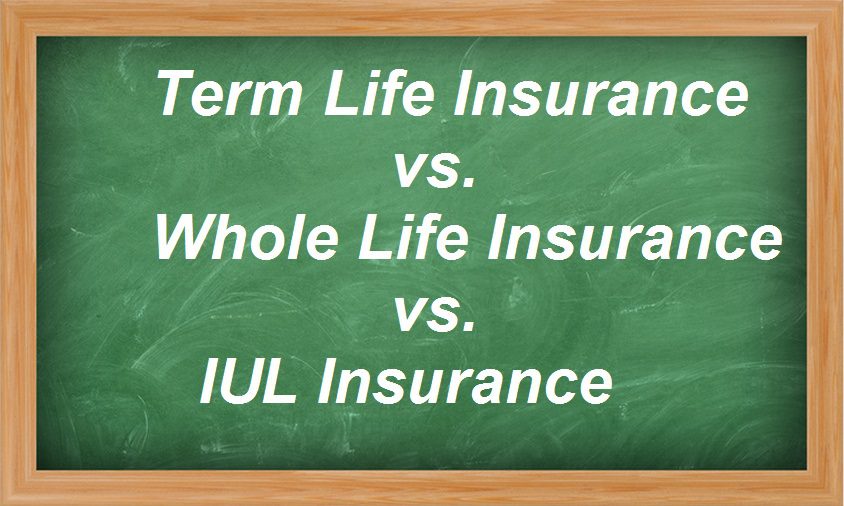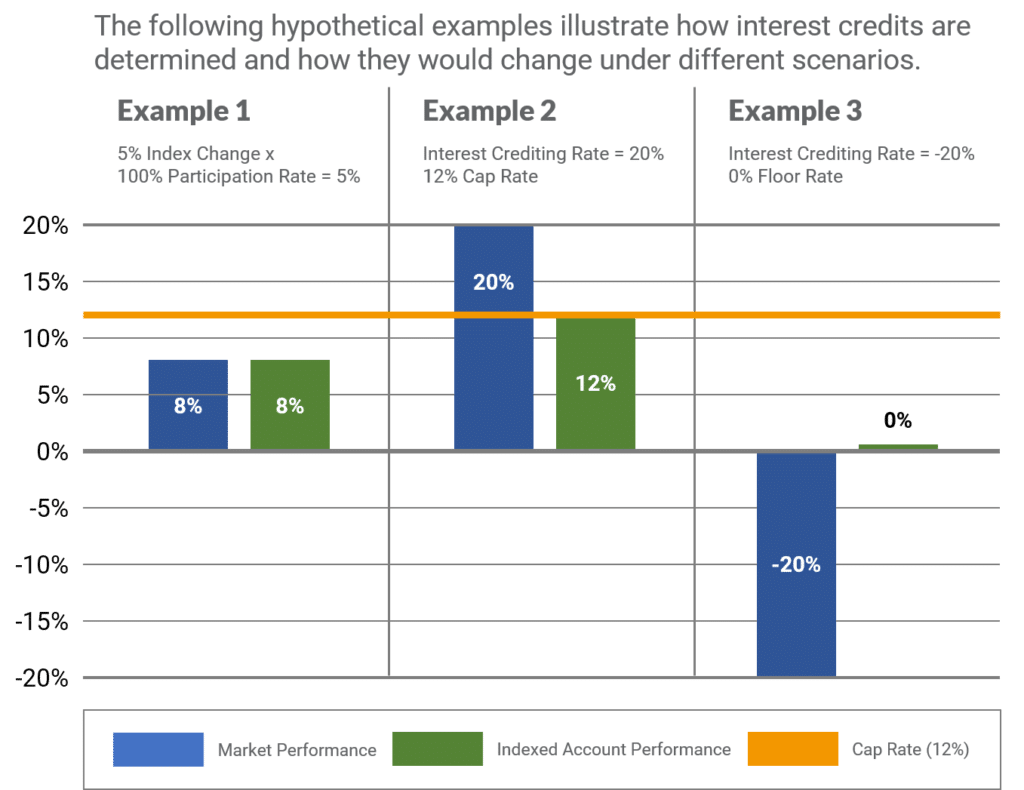All Categories
Featured
Table of Contents
1), typically in an effort to beat their category averages. This is a straw guy argument, and one IUL people love to make. Do they contrast the IUL to something like the Vanguard Total Supply Market Fund Admiral Show to no load, an expense ratio (EMERGENCY ROOM) of 5 basis factors, a turn over ratio of 4.3%, and an exceptional tax-efficient record of circulations? No, they contrast it to some dreadful actively taken care of fund with an 8% lots, a 2% EMERGENCY ROOM, an 80% turnover ratio, and a dreadful record of temporary resources gain circulations.
Mutual funds frequently make annual taxable distributions to fund owners, also when the value of their fund has actually gone down in worth. Mutual funds not just need income coverage (and the resulting annual taxes) when the mutual fund is increasing in value, but can likewise impose income tax obligations in a year when the fund has actually gone down in value.
That's not just how common funds function. You can tax-manage the fund, collecting losses and gains in order to minimize taxed distributions to the financiers, but that isn't somehow going to transform the reported return of the fund. Just Bernie Madoff kinds can do that. IULs prevent myriad tax obligation catches. The possession of mutual funds might require the mutual fund owner to pay projected tax obligations.

IULs are simple to position to ensure that, at the owner's fatality, the beneficiary is exempt to either income or estate taxes. The same tax obligation decrease strategies do not work virtually also with shared funds. There are numerous, commonly costly, tax traps linked with the moment acquiring and selling of shared fund shares, traps that do not put on indexed life insurance policy.
Chances aren't extremely high that you're mosting likely to go through the AMT due to your mutual fund circulations if you aren't without them. The rest of this one is half-truths at finest. While it is true that there is no income tax obligation due to your beneficiaries when they inherit the proceeds of your IUL plan, it is additionally true that there is no earnings tax due to your successors when they acquire a mutual fund in a taxed account from you.
Universal Life Option 1
There are much better methods to prevent estate tax problems than purchasing financial investments with reduced returns. Mutual funds might trigger earnings taxes of Social Security advantages.

The growth within the IUL is tax-deferred and might be taken as free of tax income through loans. The policy proprietor (vs. the common fund supervisor) is in control of his or her reportable earnings, hence enabling them to minimize or perhaps remove the tax of their Social Protection benefits. This set is fantastic.
Here's one more marginal problem. It's true if you acquire a shared fund for say $10 per share prior to the distribution day, and it distributes a $0.50 circulation, you are then going to owe taxes (most likely 7-10 cents per share) although that you haven't yet had any gains.
Yet in the long run, it's really regarding the after-tax return, not exactly how much you pay in taxes. You are going to pay even more in taxes by utilizing a taxable account than if you get life insurance coverage. You're additionally probably going to have even more money after paying those tax obligations. The record-keeping requirements for possessing mutual funds are significantly more intricate.
With an IUL, one's records are maintained by the insurer, duplicates of annual declarations are mailed to the proprietor, and distributions (if any type of) are amounted to and reported at year end. This is likewise type of silly. Certainly you must maintain your tax records in instance of an audit.
Iul Life Insurance Canada
Barely a factor to acquire life insurance coverage. Common funds are typically component of a decedent's probated estate.
On top of that, they go through the hold-ups and expenses of probate. The profits of the IUL plan, on the various other hand, is always a non-probate circulation that passes beyond probate straight to one's named beneficiaries, and is as a result exempt to one's posthumous lenders, unwanted public disclosure, or comparable hold-ups and prices.
We covered this one under # 7, yet just to evaluate, if you have a taxed mutual fund account, you should place it in a revocable trust fund (or perhaps easier, use the Transfer on Fatality classification) to avoid probate. Medicaid incompetency and life time revenue. An IUL can supply their owners with a stream of earnings for their entire lifetime, regardless of for how long they live.

This is advantageous when organizing one's affairs, and transforming properties to revenue before an assisted living home confinement. Common funds can not be transformed in a similar way, and are virtually constantly considered countable Medicaid assets. This is another foolish one promoting that bad people (you understand, the ones that need Medicaid, a government program for the inadequate, to spend for their retirement home) need to make use of IUL as opposed to mutual funds.
Universal Reinsurance System
And life insurance policy looks terrible when compared relatively against a pension. Second, people who have money to acquire IUL above and beyond their retirement accounts are mosting likely to have to be dreadful at taking care of cash in order to ever get approved for Medicaid to spend for their retirement home expenses.
Chronic and incurable health problem cyclist. All policies will certainly allow an owner's very easy access to cash money from their plan, usually forgoing any type of abandonment fines when such people experience a significant disease, need at-home care, or become restricted to a retirement home. Common funds do not supply a comparable waiver when contingent deferred sales fees still use to a common fund account whose owner needs to offer some shares to fund the costs of such a remain.
How Does Index Universal Life Insurance Work
You obtain to pay more for that benefit (motorcyclist) with an insurance policy. What a lot! Indexed global life insurance coverage gives survivor benefit to the beneficiaries of the IUL owners, and neither the owner neither the beneficiary can ever shed money due to a down market. Common funds give no such warranties or death benefits of any kind.
Currently, ask on your own, do you actually need or desire a survivor benefit? I definitely do not require one after I get to economic self-reliance. Do I want one? I intend if it were low-cost sufficient. Certainly, it isn't economical. Usually, a purchaser of life insurance spends for real price of the life insurance policy advantage, plus the costs of the plan, plus the profits of the insurer.
Universal Life Online
I'm not entirely certain why Mr. Morais threw in the entire "you can not shed money" once again here as it was covered fairly well in # 1. He just wished to repeat the finest marketing point for these things I suppose. Once again, you do not lose nominal dollars, however you can shed actual bucks, in addition to face severe chance expense because of low returns.

An indexed global life insurance policy policy owner may trade their policy for a totally different policy without activating revenue tax obligations. A common fund proprietor can not relocate funds from one common fund business to one more without selling his shares at the former (therefore setting off a taxable occasion), and redeeming brand-new shares at the latter, often subject to sales fees at both.
While it is true that you can trade one insurance coverage policy for an additional, the factor that people do this is that the very first one is such a terrible policy that even after getting a brand-new one and experiencing the early, negative return years, you'll still come out in advance. If they were offered the right plan the very first time, they shouldn't have any desire to ever trade it and experience the very early, unfavorable return years once more.
Latest Posts
Universal Life Premium Financing
Universal Life Insurance Death Benefit Options
Indexed Whole Life Insurance Policy